- Home
- James Hadley Chase
Lay Her Among the Lilies vm-2 Page 5
Lay Her Among the Lilies vm-2 Read online
Page 5
“I’ll go in and tell her I couldn’t raise five hundred. Then we’ll see how she plays it.”
I had finished the sandwich and was just starting on the whisky when the front door of the cabin opened and Big Boy came out. He had been inside eleven and a half minutes by the clock on the dashboard. He looked to right and left, scowled at Paula’s parked car, but was too far away to see who was in it, walked leisurely up the path, vaulted over the gate, climbed into the Dodge and drove quietly away.
“Well, that didn’t take long,” I said. “If everyone transacted business as fast as that there’d be an awful lot more work done. Come on, honey, we may as well make the call. At least, you drive me over and wait outside. I wouldn’t like her to get nervous.”
Paula started the car and drove up to the gate of the blue and white cabin. I got out.
“You may or may not hear screams,” I said. “If you do, think nothing of it. It’ll only be Eudora impressed by my personality.”
“I hope she hits you over the head with a flat iron.”
“She may. She’s one of those unpredictable types. I like them that way.”
I climbed over the gate and walked down the path to the front door. I rapped and waited, whistling softly under my breath. Nothing happened. The house was as quiet as a mouse watching a cat.
I rapped again, remembering how Big Boy had looked up and down the road, and seeing in that memory a sudden sinister significance. I touched the door, but it was locked. It was my turn now to look up and down the road. Apart from Paula and the car it was as empty as the face of an old man who is out of tobacco and has no money. I lifted the knocker and slammed it down three times, making quite a noise. Paula peered out of the car window and frowned at me.
I waited. Still nothing happened. The mouse was still watching the cat. Silence brooded over the house.
“Drive down to Beach Road,” I said to Paula. “Wait for me there.”
She started the engine and drove away without looking at me. That’s one of the very good things about Paula. She knows an emergency when she sees one, and obeys orders without question.
Again I looked up and down the road, wondering if anyone was peeping at me from behind the curtains of the many houses within sight. I had to take that risk. I wandered around to the back of the house. The service door stood open, and moving quietly I peered into a small kitchen. It was the kind of kitchen you would expect to find in a house owned by a girl like Eudora Drew. She probably had a monthly wash-up. Everywhere, in the sink, on the table, on the chairs and floor, were dirty saucepans, crockery and glasses. The trash bin was crammed with empty bottles of gin and whisky. A frying-pan full of burnt grease and bluebottle flies leered up at me from the sink. There was a nicely blended smell of decay, dirt and sour milk hanging in the air. Not the way I should like to live, but then tastes differ.
I crossed the kitchen, opened the door and peered into the small, untidy hall. The doors opened on to the hall— presumably the living-room and the dining-room. I gumshoed to the right-hand door, peered into more untidiness, more dust, more slipshod living. Eudora wasn’t in there; nor was she in the dining-room. That left the upstairs rooms. I mounted the stairs quietly, wondering if she might be having a bath, and that was the reason why she hadn’t answered my ring, but decided it was unlikely. She wasn’t the type to take sudden baths.
She was in the front bedroom. Big Boy had made a thorough job of it, and she had done her best to protect herself. She lay across the tumbled bed, her legs sprawled out, her blouse ripped off her back. Knotted around her throat was a blue and red silk scarf—probably hers. Her eyes glared out of her blue-black face; her tongue lay in a little bed of foamy froth. She wasn’t a pretty sight, nor had death come to her easily.
I shifted my eyes away from her, and looked around the room. Nothing had been disturbed. It was as untidy and as dusty as the other rooms, and reeked of stale perfume.
I stepped quietly to the door, not looking at the bed again, and moved out of the room and into the passage. I was careful not to touch anything, and on my way downstairs I rubbed the banister rail with my handkerchief. I went into the smelly, silent little kitchen, pushed open the screen door that had swung to in the hot breeze, on down the garden path to the gate, and walked without haste to where Paula was waiting.
Chapter II
I
Captain of the Police Brandon sat behind his desk and glowered at me. He was a man around the wrong side of fifty, short, inclined to fat, with a lot of thick hair as white as a fresh fall of snow, and eyes that were as hard and as friendly and as expressionless as beer-stoppers.
We made an interesting quartet. There was Paula, looking cool and unruffled, seated in the background. There was Tim Mifflin, leaning against the wall, motionless, thoughtful, and as quiet as a centenarian taking a nap. There was me in the guest of honour’s chair before the desk, and, of course, there was Captain of the Police Brandon.
The room was big and airy and well furnished. There was a nice Turkey carpet on the floor, several easy chairs and one or two reproductions of Van Gogh’s country scenes on the walls.
The big desk stood in the corner of the room between two windows that overlooked the business section of the city.
I had been in this room before, and I had still memories of the little unpleasantness that had occurred then. Brandon liked me as much as Hiroshima liked the atomic bomb, and I was expecting unpleasantness again.
The interview hadn’t begun well, and it wasn’t improving. Already Brandon was fiddling with a cigar: a trick that denoted his displeasure.
“All right,” he said in a thin, exasperated voice, “let’s start from the beginning again. You had this letter…” He leaned forward to peer at Janet Crosby’s letter as if it had been infected with tetanus. He was careful not to touch it. “Dated May 15th, 1948.”
Well, at least that showed he could read. I didn’t say anything.
“With this letter were five onehundred-dollar bills. Right?”
“Check,” I said.
“You received the letter on May 16th, but put it unopened in a coat pocket and forgot about it. It was only when you gave the coat away the letter was found. Right?”
“Check.”
He scowled down at the cigar, then rested his broad fat nose on it.
“A pretty smart way to run a business.”
“These things happen,” I said shortly. “I remember during the Tetzi trial, the police mislaid…”
“Never mind the Tetzi trial,” Brandon said in a voice you could have sliced ham on.
“We’re talking about this letter. You went up to the Crosby’s estate with the idea of seeing Miss Maureen Crosby. Right?”
“Yeah,” I said, getting a little tired of this.
“But you didn’t see her because she isn’t well, so you had to stick your nose still further into this business by calling on Miss Janet Crosby’s personal maid. Right?”
“If you like to put it like that I don’t mind.”
“Is it right or isn’t it?”
“Oh, sure.”
“This woman Drew said she wanted five hundred dollars before she talked. That’s your story, and I’m not sold on it. You watched the house, and after a while an olive-green Dodge arrived and a big fella went in. He remained in there for about ten minutes, then came away. Then you went in and found her dead. Right?”
I nodded.
He removed the band from the cigar, groped for a match. All the while his beer-stopper eyes stared moodily at me.
“You claim the Dodge belongs to Dr. Salzer,” he said, and scraped the match on the sole of his shoe.
“Mifflin says it does. I asked him to check the registration number.”
Brandon looked over at Mifflin who stared with empty eyes at the opposite wall.
“A half an hour after Malloy telephoned you, asking you who owned this car, you received a report from Dr. Salzer that the car had been stolen. That’s right, isn’t
it?”
“Yes, sir,” Mifflin said stonily.
Brandon’s eyes swivelled in my direction.
“Did you hear that?”
“Sure.”
“All right.” Brandon applied the burning match to his cigar and sucked in smoke. “Just so long as you understand, and just so long as you don’t get any fancy ideas into your head about Dr. Salzer. You may not know it, but Dr. Salzer is a very respectable and eminent citizen of this city, and I’m not going to have him bothered by you or anyone like you. Do you understand that?”
I pulled thoughtfully at my nose. This was unexpected.
“Sure,” I said.
He blew smoke across the desk into my face.
“I don’t like you, Malloy, and I don’t like your itsy-bitsy organization. Maybe it has its uses, but I doubt it. I’m damned sure you are a trouble maker. You stirred up enough trouble with that Cerf case some months ago, and if you hadn’t been so damned smooth, you would have been in a lot of trouble yourself. Miss Janet Crosby’s dead.” He leaned forward to peer at the letter again. “The Crosbys were and still are a very wealthy and influential family, and I’m not standing for you stirring up trouble for them. You have no legal right to the five hundred dollars Miss Crosby sent you. That is to be paid back to her estate—immediately.
You are to leave Miss Maureen Crosby alone. If she is in trouble with a blackmailer—which I doubt—she will come to me if she needs help. This business has nothing to do with you, and if I find you are making a nuisance of yourself I’ll take steps to put you where you won’t trouble anyone for a very long time. Do you understand?”
I grinned at him.
“I’m beginning to,” I said, and leaned forward to ask, “How much does Salzer pay into your Sports Fund, Brandon?”
The fat pink and white face turned a dusky-mauve colour. The beer-stopper eyes sparked like chipped flint.
“I’m warning you, Malloy,” he said, a snarl in his voice. “My boys know how to take care of a punk like you. One of these nights you’ll get taken up a dark alley for a beating. Lay off the Crosbys and lay off Salzer. Now get out!”
I stood up.
“And how much does the Crosby estate pay into your welfare fund, Brandon?” I asked.
“How much did old man Crosby slip you for hushing up that auto-killing Maureen performed two years ago? Respectable and eminent? Don’t make me laugh. Salzer’s as respectable and eminent as Delmonico’s chucker-out. How come he signed Macdonald Crosby’s death certificate when he isn’t even qualified?”
“Get out!” Brandon said very quietly.
We stared at each other for perhaps the best part of four seconds, then I shrugged, turned my back on him and made for the door.
“Come on, Paula, let’s get out of here before we suffocate,” I said, and jerked open the door. “Remember that little crack about taking me up a dark alley. It’s just as much fun sueing the Captain of Police for assault as it is anyone else.”
I stamped down the long passage behind Paula. Mifflin came after us walking like a man in hob-nailed boots treading on eggs.
He caught up with us at the end of the passage.
“Wait a minute,” he said. “Come in here,” and he opened his office door.
We went in because both Paula and I liked Mifflin, and besides, he was too useful to fall out with. He shut the door and leaned against it. His red rubbery face was worried.
“That was a sweet way to talk to Brandon,” he said bitterly. “You’re crazy, Vic. You know as well as I do that kind of stuff won’t get you anywhere.”
“I know,” I said, “but the rat got me mad.”
“I would have tipped you off, only I hadn’t time. But you ought to know Brandon hates your guts.”
“I know that, too. But what could I do? I had to tell him the story. What’s Salzer to him?”
Mifflin shrugged.
“Salzer’s a good friend to the police. Sure, I know he runs a racket up at that sanatorium. But there’s nothing illegal in it.” He lowered his voice, went on, “Where the hell do you think Brandon got his Cadillac from? A Captain of Police’s money doesn’t run to a job like that. And another thing: Maureen Crosby put Brandon’s kid through college, and she takes care of Mrs. Brandon’s doctor’s bills. You picked on two of Brandon’s best patrons.”
“I guessed there must be something like that to throw Brandon into such an uproar,” I said.
“Look, Tim, did Salzer really report his car stolen?”
“Yeah, I took the call myself.”
“What are you going to do about this killer? Anything or nothing?”
“Why, sure. We’re going to find him. I know what you’re thinking, Vic, but you’re wrong. Salzer’s too smooth to get mixed up in a killing. You can count him out.”
“Well, okay.”
“And watch out. That stuff about a beating wasn’t fiction. You won’t be the first or the last guy who’s had his ears smacked down because Brandon doesn’t like him. I’m telling you. Watch out.”
“Thanks, Tim. I’ll watch out, but I can take care of myself.”
Mifflin rubbed his shapeless nose with the back of his hand.
“It’s not that simple. You start fighting back and you get caught with a police-assault rap. They’ll fake a charge against you and take you in, and then the crew boys will really go to town on you.”
I patted his arm.
“Don’t let it worry you. It’s not going to worry me. Anything else?”
Mifflin shook his head.
“Just watch out,” he said, opened his office door, peeped up and down the passage to make sure the coast was clear and then waved us out.
We went down the stone stairs into the lobby. Two big plain-clothes men lounged by the double doors. One of them had fiery red hair and a white flabby face. The other was thin and as hard looking as a lump of rusty pig iron. They both eyed us over slowly and thoughtfully, and the redheaded one spat accurately at the brass spitoon six yards from him. We went past them, down the steps into the street.
II
At the back of Orchid Buildings there is a narrow alley, used primarily as a parking lot for cars belonging to the executives and their staffs working in the building, and at the far end of the alley you will find Finnegan’s bar.
Mike Finnegan was an old friend of mine: a useful man to know as he had contacts with most of the hoods and con men who arrived in Orchid City, and any shady activity that happened to be cooking he knew about. Some years ago I had taken a hand in a little argument between Finnegan and three toughs whose ambition at that time was to poke Finnegan’s eyes out with a broken whisky bottle. Finnegan seemed to think if it hadn’t been for me he would have lost his sight, and he was embarrassingly grateful.
Besides a source of useful information, Finnegan’s bar was also a convenient after-officehours meeting-place, and, guessing Kerman would be there, I parked the Buick outside and went in with Paula.
It was a little after eleven o’clock, and only a few stragglers remained up at the counter.
Jack Kerman lolled at a corner table, a newspaper spread out before him, a bottle of Scotch within easy reach. He looked up and waved.
As we crossed the room, I flapped a hand at Finnegan, who gave me a broad smile.
Finnegan would never win beauty prize. Built like a gorilla, his battered, scarred face as ugly as it was humorous, he looked a cross between King Kong and a ten-ton truck.
Kerman rose to his feet and gave Paula an elaborate bow.
“Imagine you coming to a joint like this,” he said. “Don’t tell me you’ve left your vinegar and repressions locked up in the office safe.”
“Skip it, Jack,” I said, sitting down. “Things are popping. Before I tell the tale, have you anything for me?”
Before he could answer Finnegan arrived.
“Evening, Mr. Malloy. Evening, Lady.”
Paula smiled at him.
“Another glass, Mike,” I said. �
�I’ll help Kerman finish the Scotch.” I looked at Paula.
“Coffee?”
She nodded.
“And coffee for Miss Bensinger.”
When Finnegan had brought the glass and the coffee and had gone back to the bar, I said, “Let’s have it.”
“I saw Joan Parrnetta,” Kerman said, and rolled his eyes. “Very nice; very lush.” He made curves in the air with his hands. “If it hadn’t been for the butler who kept popping in and out, a beautiful friendship might have developed.” He sighed. “I wonder what it is about me women find so attractive?”
“Your lack of intelligence,” Paula said promptly. “It’s a change for women to talk down to men.”
“All right, break it up!” I said sharply, as Kerman began to rise slowly from his chair, his hand reaching for the whisky bottle. “Never mind what she looks like. What did she say about Janet?”
Kerman resumed his seat, glaring at Paula.
“She said she was the most surprised person on earth to hear Janet had died of heart failure. Two days before she died, she played tennis with the Parmetta girl, and wiped the floor with her. Does that sound like heart trouble?”
“Anything else?”
“I asked her about this guy Sherrill. He’s out of town, by the way. I didn’t see him. Joan Parmetta said Janet was madly in love with Sherrill. They saw a lot of each other. Then a week before Macdonald Crosby’s death Sherrill stopped going to the house, and the engagement was broken off. There was no reason given, and even Joan, who was intimate with Janet, didn’t get the lowdown, although she fished for it. Janet said they had a disagreement, and she didn’t want to talk about it.”
“Did she say what kind of a guy this Sherrill was?” Kerman shrugged.
“She only met him a few times. She said he was handsome, has no idea what his job is, whether he has money or not. He has a house on Rossmore Avenue. Small, but nice. A Chinese girl looks after the place.” He blew a kiss to the ceiling. “She’s nice, too. I didn’t get much out of her, though. She had no idea when Sherrill would be back. The guy lives well and must be making money. There was a Cadillac the size of a battleship in the garage, and the garden looked as if plenty of dough had been spent on it. There was a swimming-pool, too, and the usual lush trappings; all on the small side, but very, very nice.”

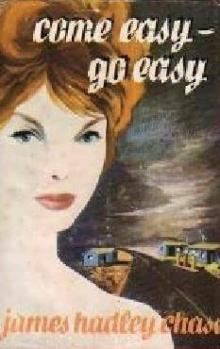 Come Easy, Go Easy
Come Easy, Go Easy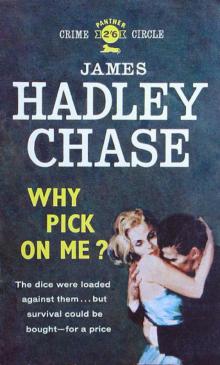 Why Pick On ME?
Why Pick On ME?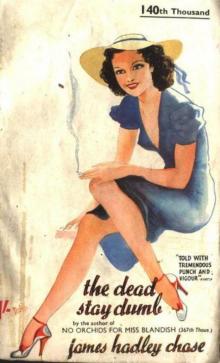 The Dead Stay Dumb
The Dead Stay Dumb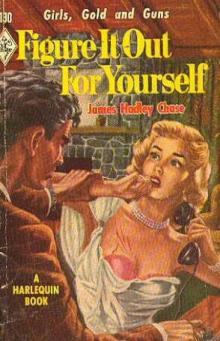 Figure it Out For Yourself
Figure it Out For Yourself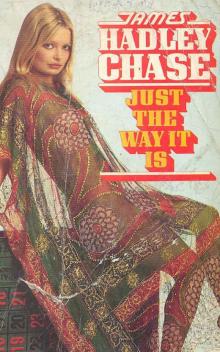 1944 - Just the Way It Is
1944 - Just the Way It Is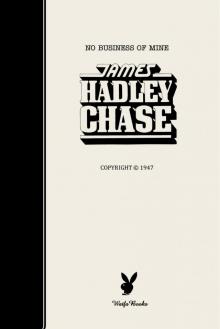 No Business Of Mine
No Business Of Mine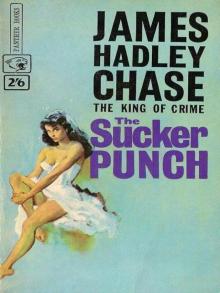 1953 - The Sucker Punch
1953 - The Sucker Punch Cade
Cade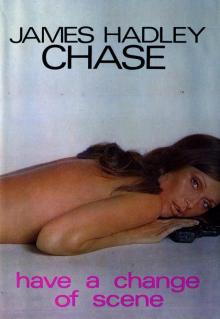 1973 - Have a Change of Scene
1973 - Have a Change of Scene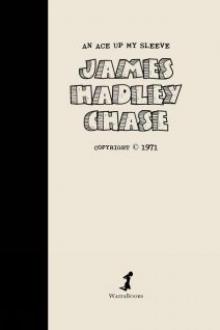 An Ace up my Sleeve
An Ace up my Sleeve 1968-An Ear to the Ground
1968-An Ear to the Ground 1950 - Figure it Out for Yourself
1950 - Figure it Out for Yourself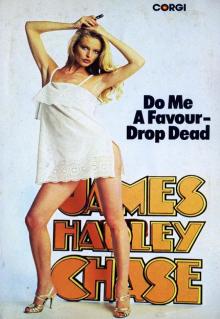 1976 - Do Me a Favour Drop Dead
1976 - Do Me a Favour Drop Dead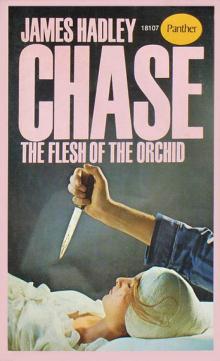 The Flesh of The Orchid
The Flesh of The Orchid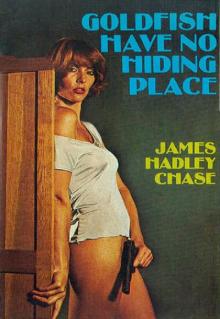 1974 - Goldfish Have No Hiding Place
1974 - Goldfish Have No Hiding Place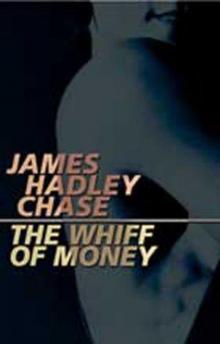 Whiff of Money
Whiff of Money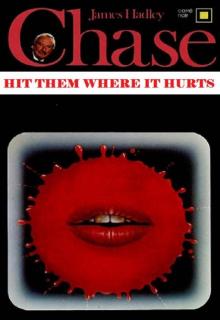 1984 - Hit Them Where it Hurts
1984 - Hit Them Where it Hurts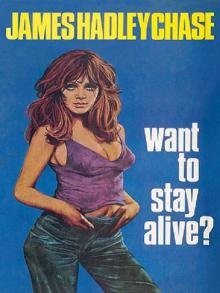 1971 - Want to Stay Alive
1971 - Want to Stay Alive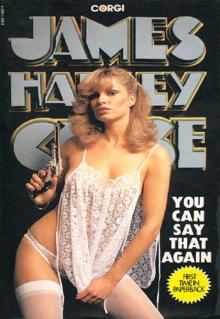 1980 - You Can Say That Again
1980 - You Can Say That Again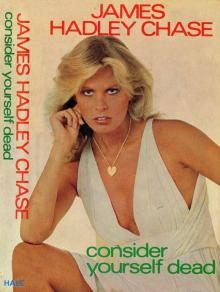 1978 - Consider Yourself Dead
1978 - Consider Yourself Dead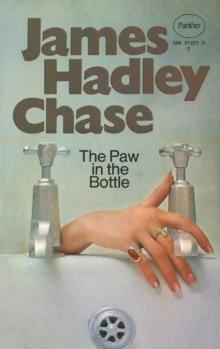 The Paw in The Bottle
The Paw in The Bottle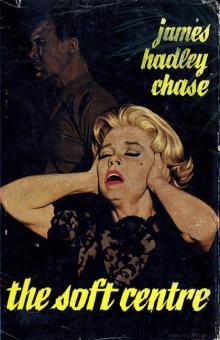 Soft Centre
Soft Centre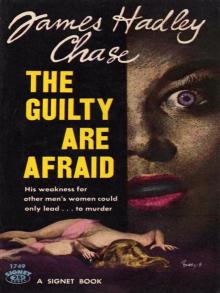 The Guilty Are Afraid
The Guilty Are Afraid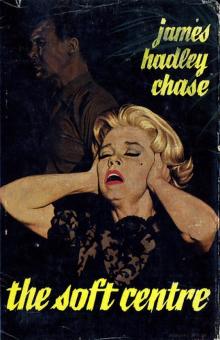 The Soft Centre
The Soft Centre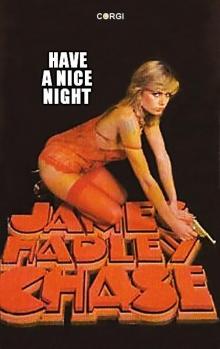 Have a Nice Night
Have a Nice Night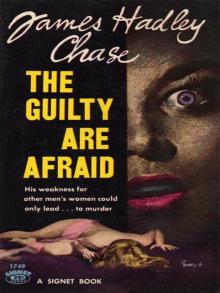 1957 - The Guilty Are Afraid
1957 - The Guilty Are Afraid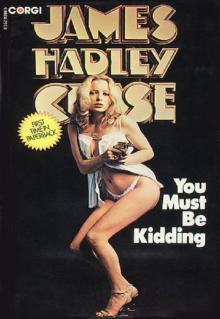 1979 - You Must Be Kidding
1979 - You Must Be Kidding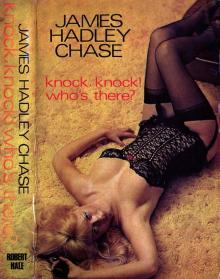 Knock, Knock! Who's There?
Knock, Knock! Who's There?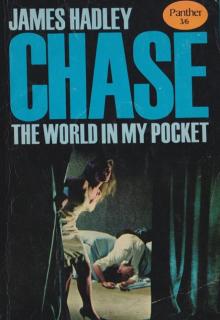 1958 - The World in My Pocket
1958 - The World in My Pocket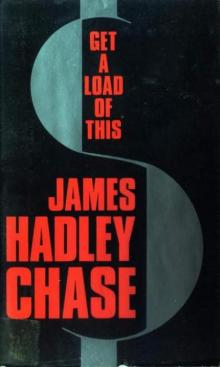 Get a Load of This
Get a Load of This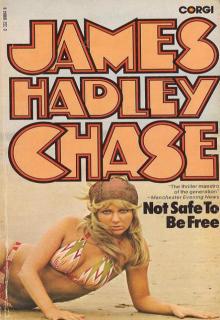 1958 - Not Safe to be Free
1958 - Not Safe to be Free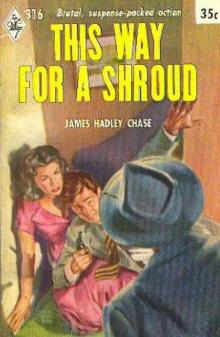 This Way for a Shroud
This Way for a Shroud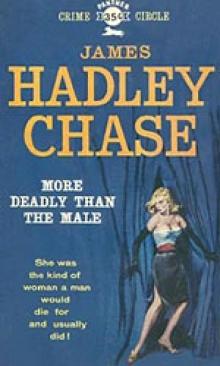 More Deadly Than the Male
More Deadly Than the Male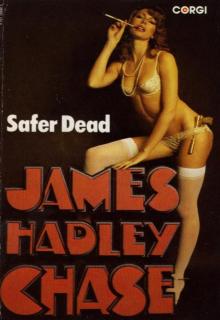 Safer Dead
Safer Dead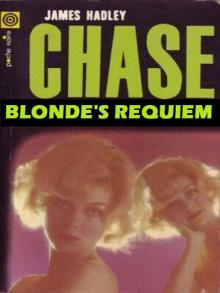 1945 - Blonde's Requiem
1945 - Blonde's Requiem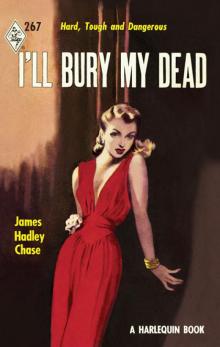 I'll Bury My Dead
I'll Bury My Dead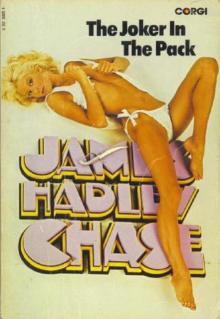 1975 - The Joker in the Pack
1975 - The Joker in the Pack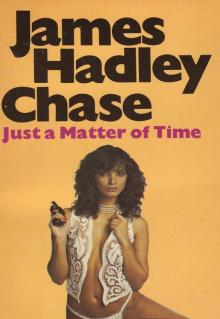 1972 - Just a Matter of Time
1972 - Just a Matter of Time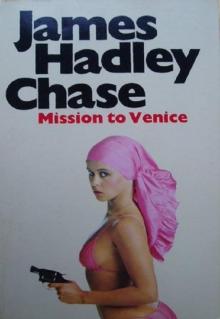 1954 - Mission to Venice
1954 - Mission to Venice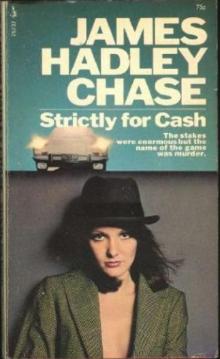 Strictly for Cash
Strictly for Cash A COFFIN FROM HONG KONG
A COFFIN FROM HONG KONG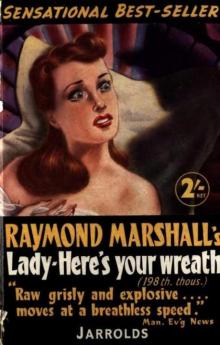 Lady—Here's Your Wreath
Lady—Here's Your Wreath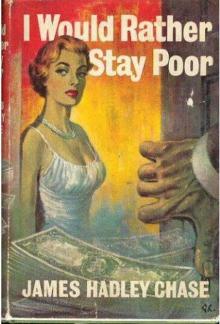 I Would Rather Stay Poor
I Would Rather Stay Poor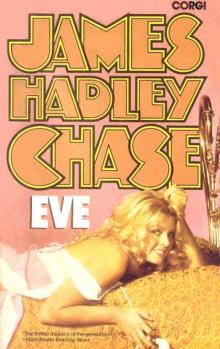 Eve
Eve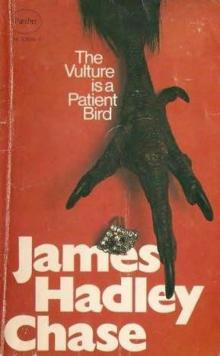 Vulture Is a Patient Bird
Vulture Is a Patient Bird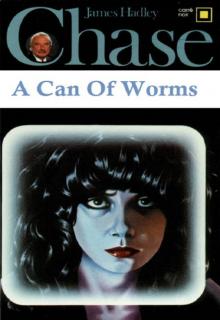 1979 - A Can of Worms
1979 - A Can of Worms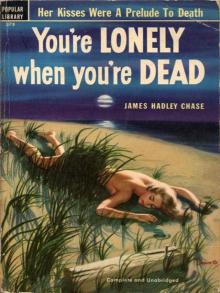 1949 - You're Lonely When You Dead
1949 - You're Lonely When You Dead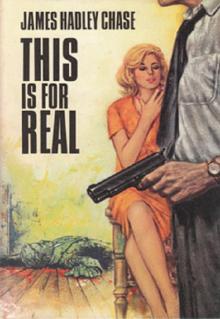 1965 - This is for Real
1965 - This is for Real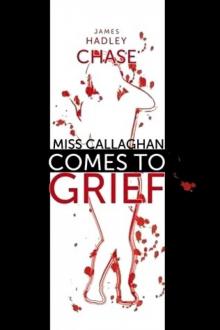 (1941) Miss Callaghan Comes To Grief
(1941) Miss Callaghan Comes To Grief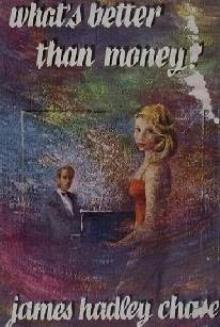 What`s Better Than Money
What`s Better Than Money This is For Real
This is For Real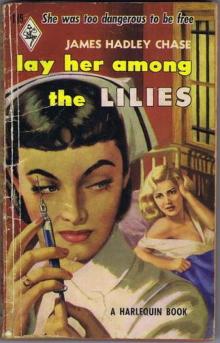 Lay Her Among the Lilies vm-2
Lay Her Among the Lilies vm-2 Knock Knock Whos There
Knock Knock Whos There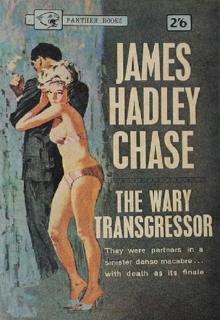 1952 - The Wary Transgressor
1952 - The Wary Transgressor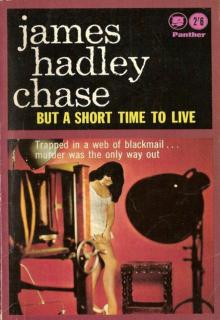 1951 - But a Short Time to Live
1951 - But a Short Time to Live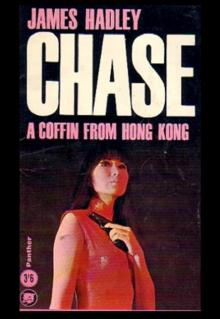 1962 - A Coffin From Hong Kong
1962 - A Coffin From Hong Kong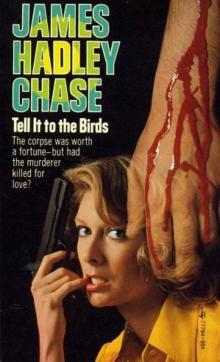 Tell It to the Birds
Tell It to the Birds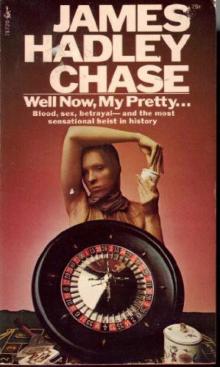 Well Now, My Pretty…
Well Now, My Pretty…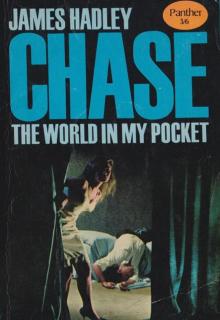 The World in My Pocket
The World in My Pocket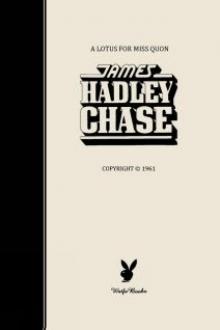 A Lotus for Miss Quon
A Lotus for Miss Quon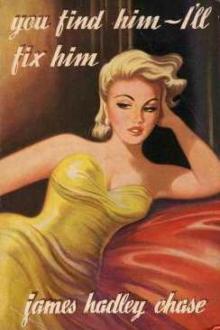 You Find Him, I'll Fix Him
You Find Him, I'll Fix Him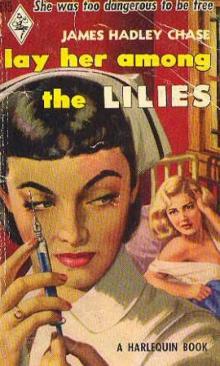 Lay Her Among The Lilies
Lay Her Among The Lilies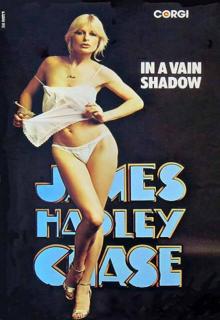 1951 - In a Vain Shadow
1951 - In a Vain Shadow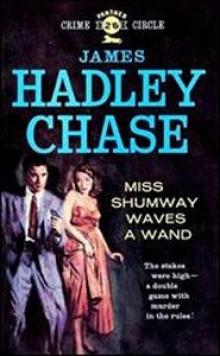 Miss Shumway Waves a Wand
Miss Shumway Waves a Wand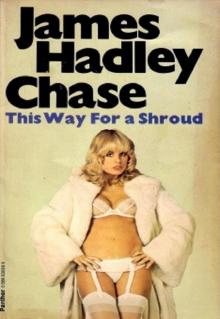 1953 - This Way for a Shroud
1953 - This Way for a Shroud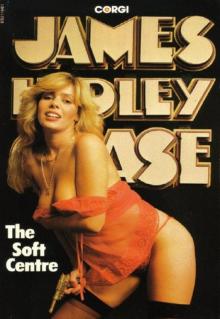 1964 - The Soft Centre
1964 - The Soft Centre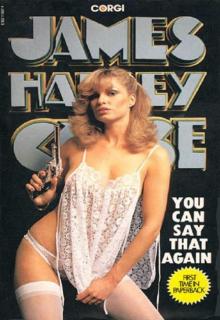 You Can Say That Again
You Can Say That Again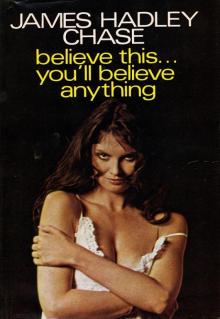 1975 - Believe This You'll Believe Anything
1975 - Believe This You'll Believe Anything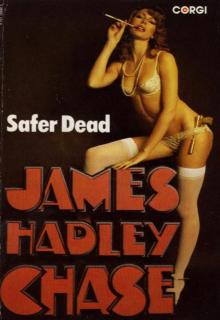 1954 - Safer Dead
1954 - Safer Dead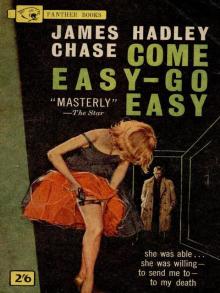 1960 - Come Easy, Go Easy
1960 - Come Easy, Go Easy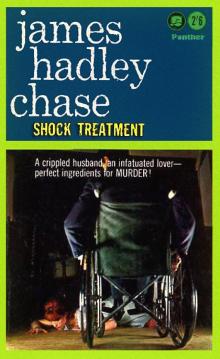 Shock Treatment
Shock Treatment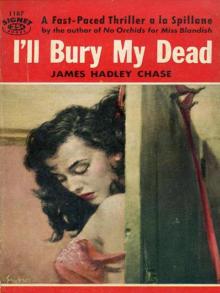 1953 - I'll Bury My Dead
1953 - I'll Bury My Dead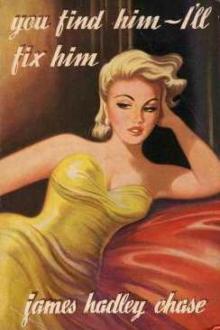 You Find Him – I'll Fix Him
You Find Him – I'll Fix Him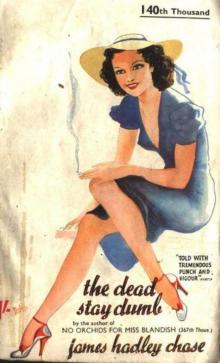 Dead Stay Dumb
Dead Stay Dumb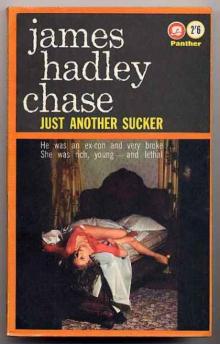 Just Another Sucker
Just Another Sucker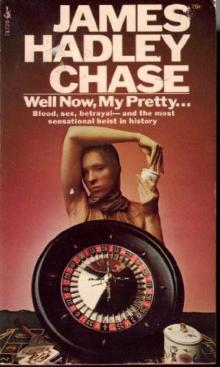 Well Now My Pretty
Well Now My Pretty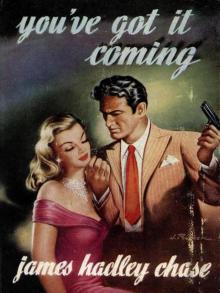 You've Got It Coming
You've Got It Coming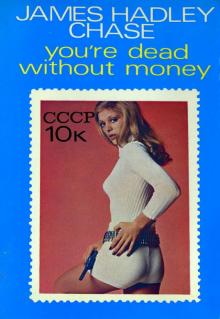 1972 - You're Dead Without Money
1972 - You're Dead Without Money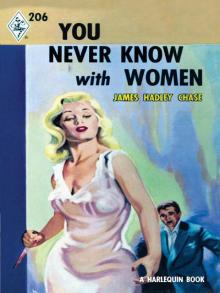 1955 - You Never Know With Women
1955 - You Never Know With Women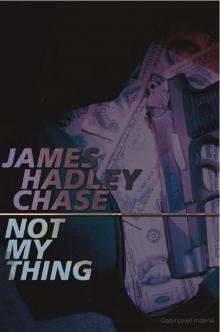 Not My Thing
Not My Thing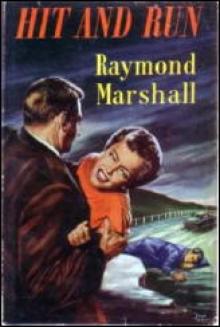 Hit and Run
Hit and Run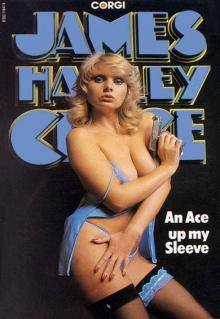 1971 - An Ace Up My Sleeve
1971 - An Ace Up My Sleeve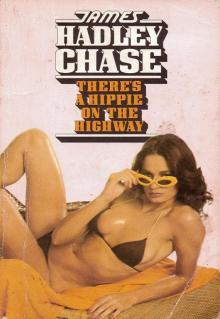 1970 - There's a Hippie on the Highway
1970 - There's a Hippie on the Highway 1968 - An Ear to the Ground
1968 - An Ear to the Ground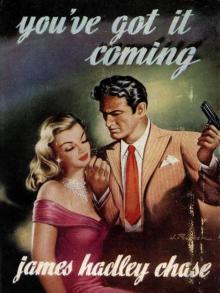 1955 - You've Got It Coming
1955 - You've Got It Coming 1963 - One Bright Summer Morning
1963 - One Bright Summer Morning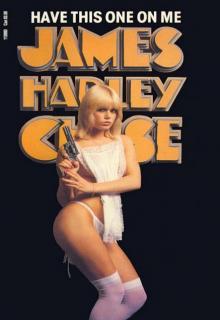 1967 - Have This One on Me
1967 - Have This One on Me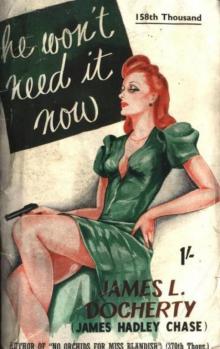 He Won't Need It Now
He Won't Need It Now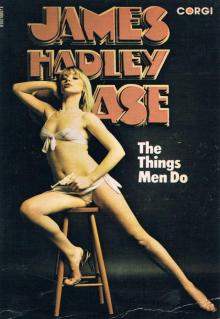 1953 - The Things Men Do
1953 - The Things Men Do Believed Violent
Believed Violent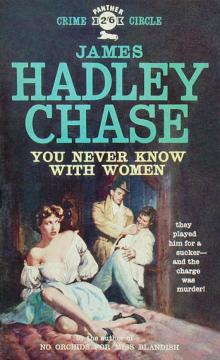 You Never Know With Women
You Never Know With Women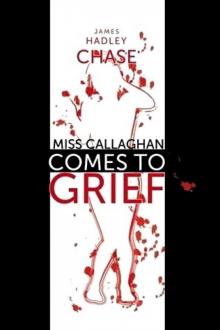 Miss Callaghan Comes to Grief
Miss Callaghan Comes to Grief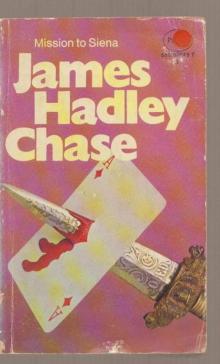 Mission to Siena
Mission to Siena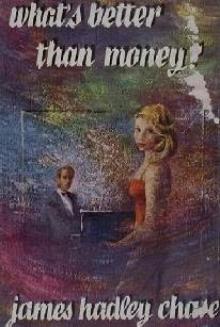 What's Better Than Money
What's Better Than Money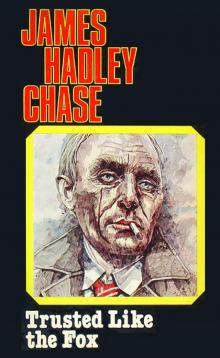 Trusted Like The Fox
Trusted Like The Fox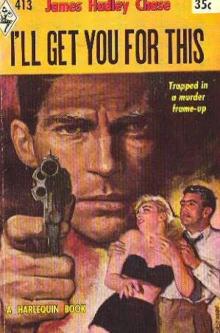 I'll Get You for This
I'll Get You for This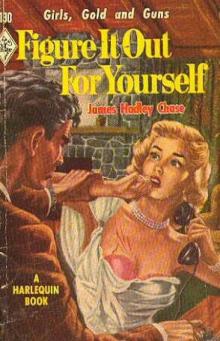 Figure It Out for Yourself vm-3
Figure It Out for Yourself vm-3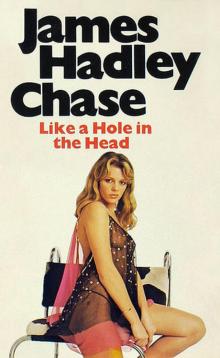 Like a Hole in the Head
Like a Hole in the Head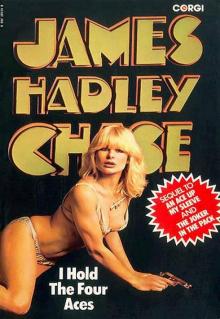 1977 - I Hold the Four Aces
1977 - I Hold the Four Aces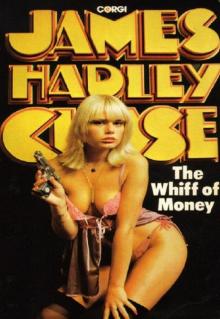 1969 - The Whiff of Money
1969 - The Whiff of Money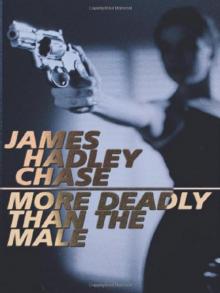 1946 - More Deadly than the Male
1946 - More Deadly than the Male 1956 - There's Always a Price Tag
1956 - There's Always a Price Tag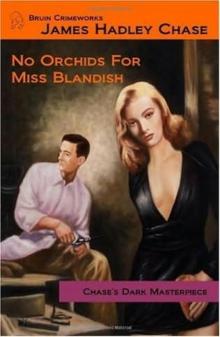 No Orchids for Miss Blandish
No Orchids for Miss Blandish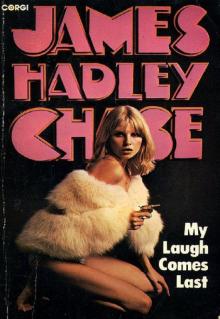 1977 - My Laugh Comes Last
1977 - My Laugh Comes Last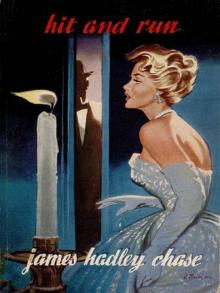 1958 - Hit and Run
1958 - Hit and Run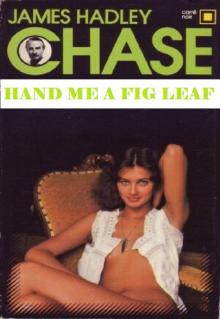 1981 - Hand Me a Fig Leaf
1981 - Hand Me a Fig Leaf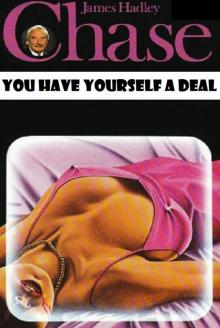 1966 - You Have Yourself a Deal
1966 - You Have Yourself a Deal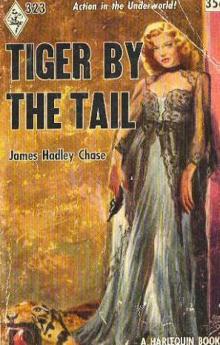 Tiger by the Tail
Tiger by the Tail